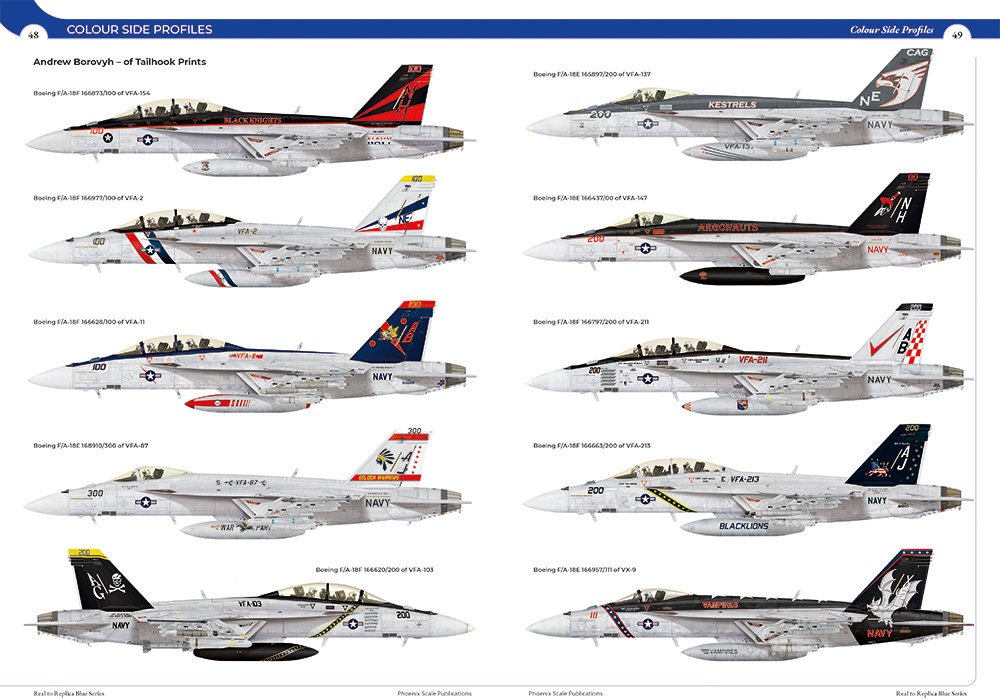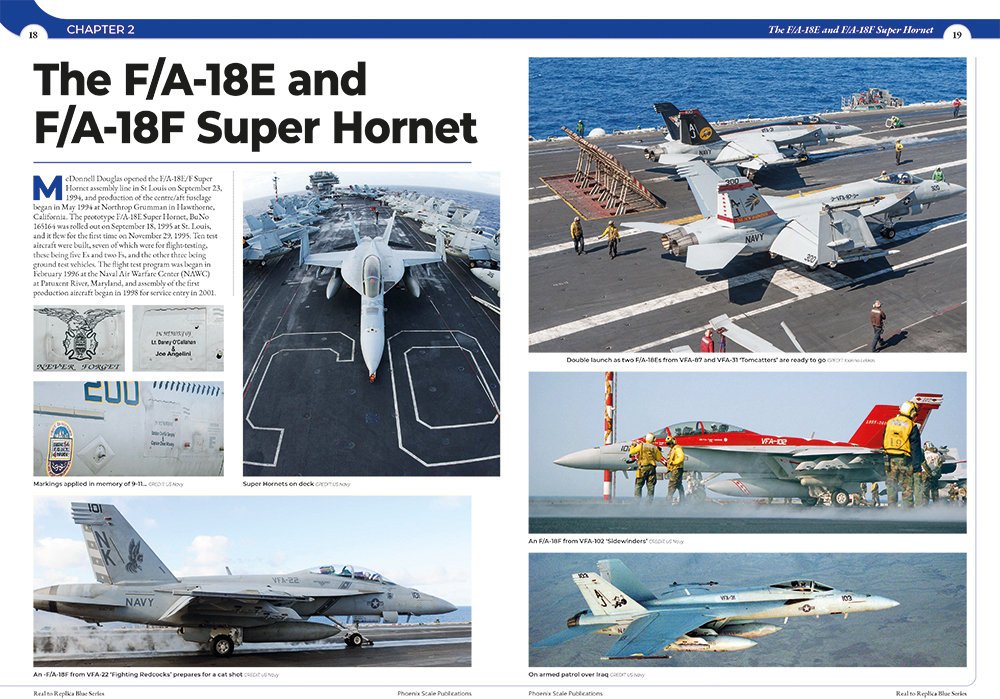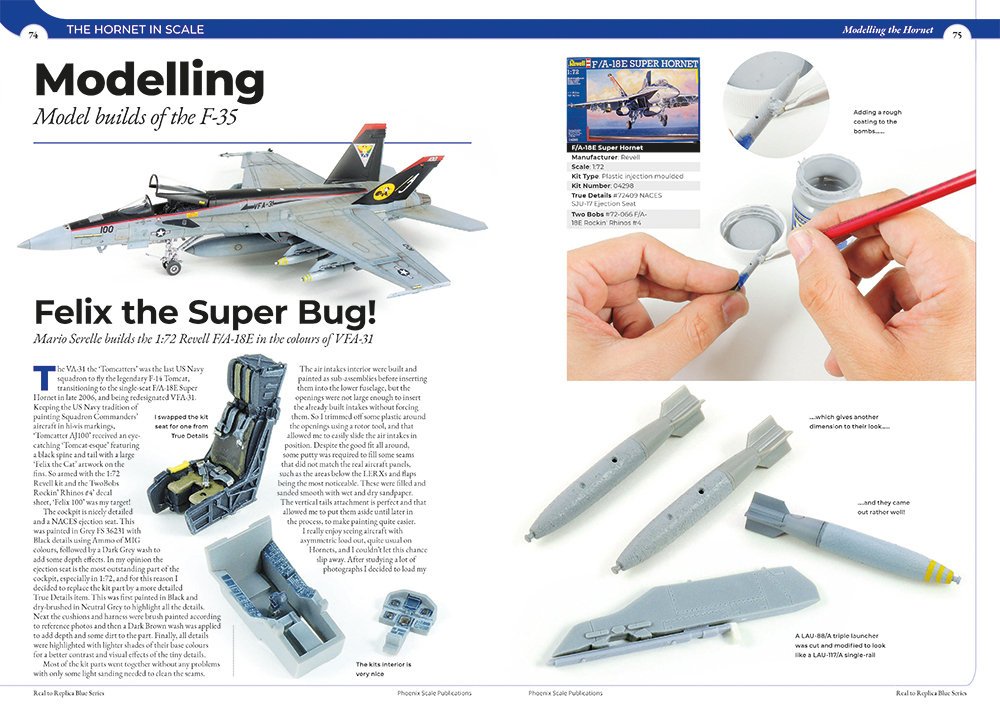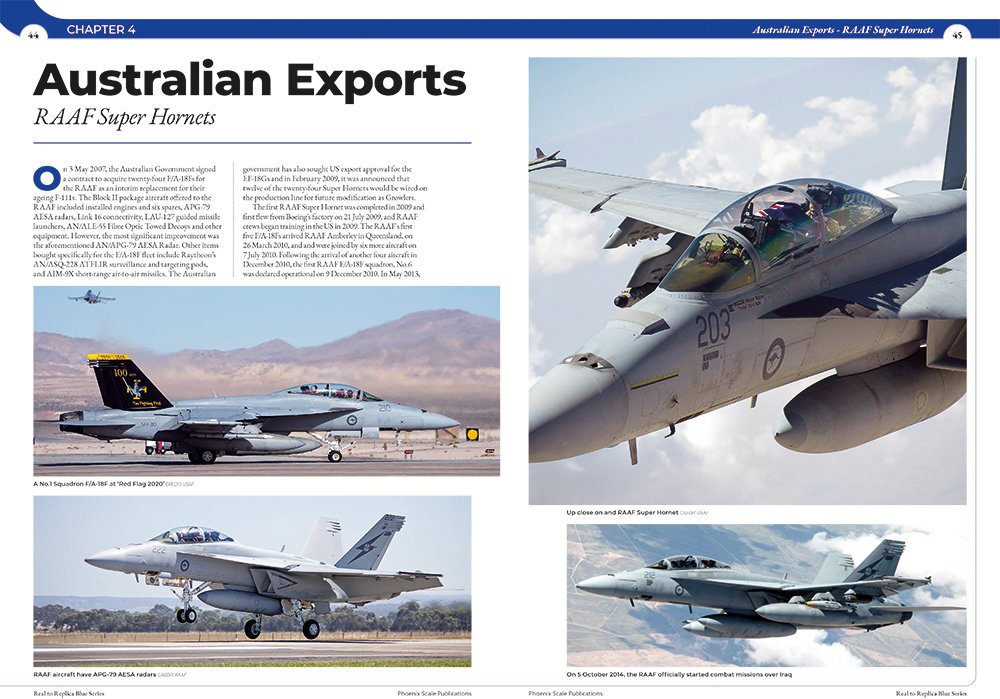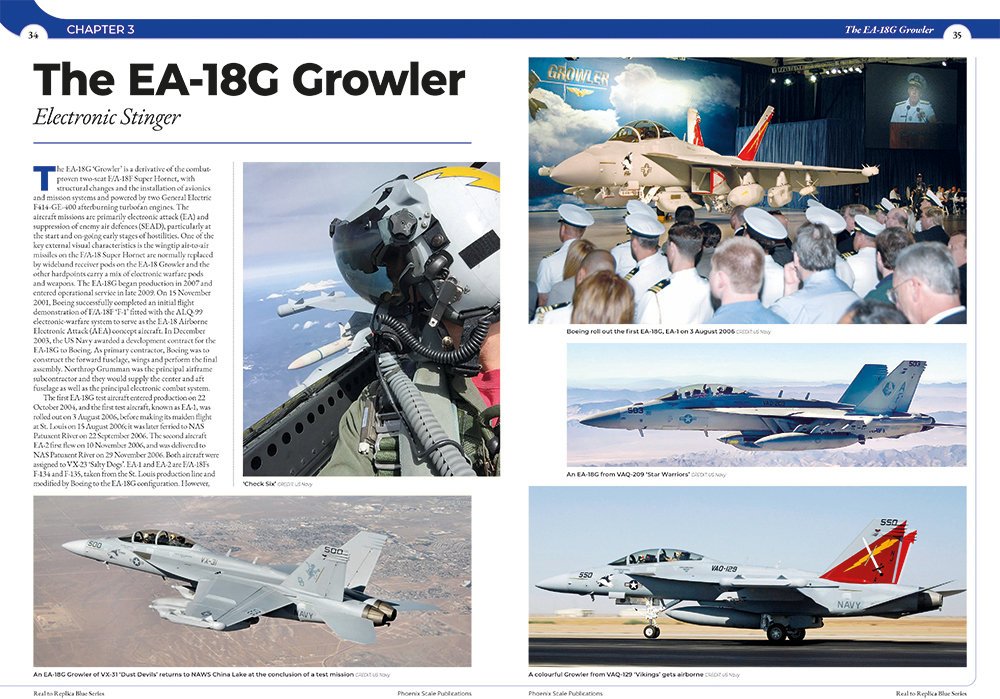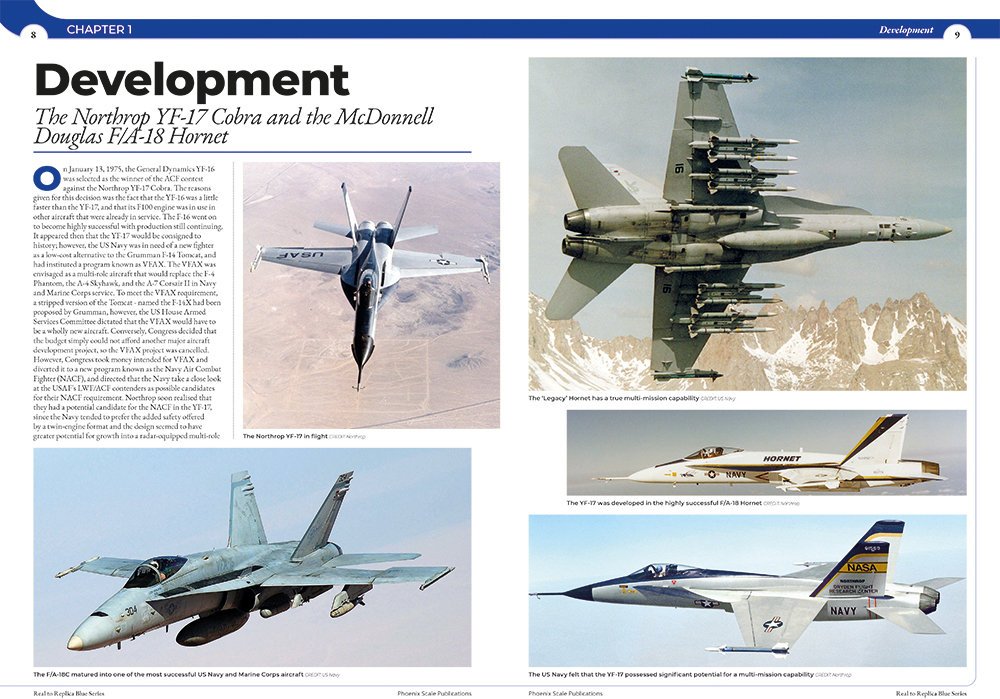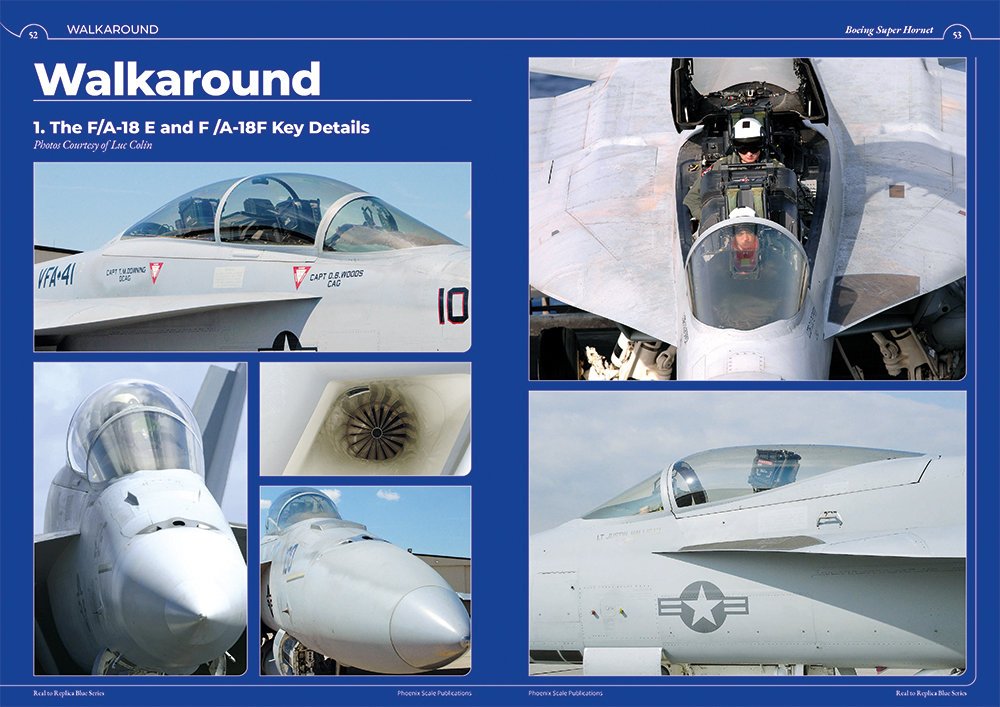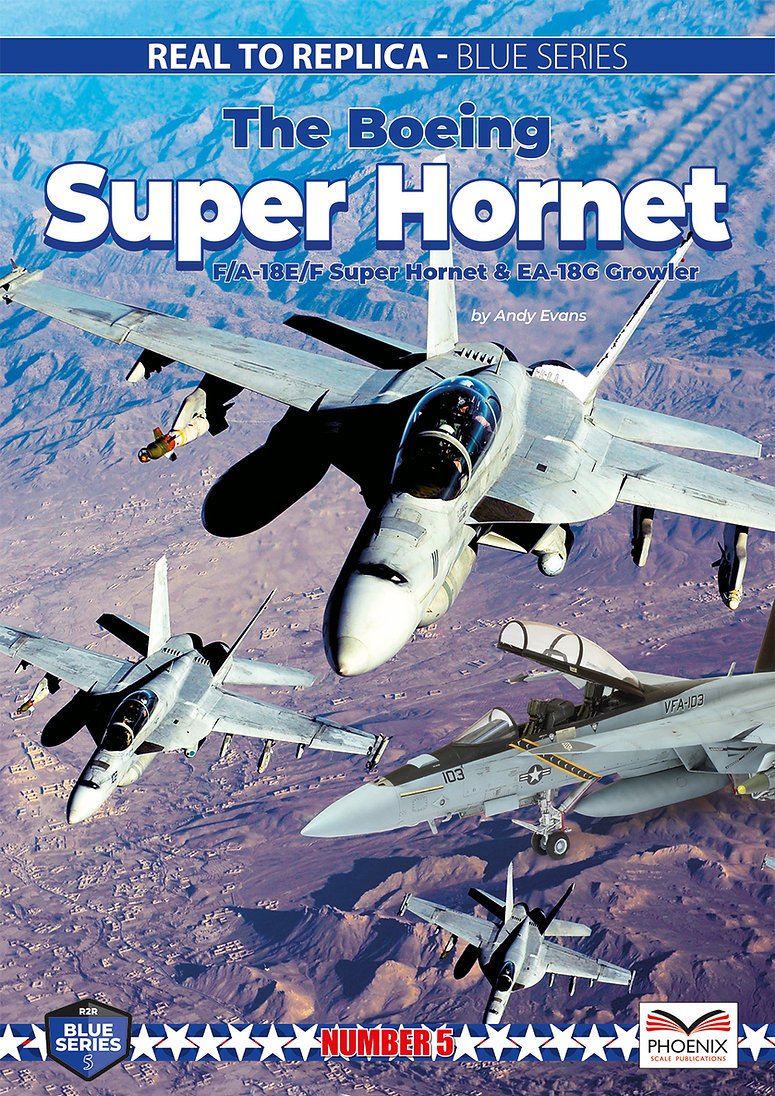
Real to Replica Blue Series 5 Super Hornet
By Andy Evans
100 Pages, Full Colour
Built on the success of the F/A-18C and D ‘Legacy Hornets’, the F/A-18E single-seat and the F/A-18F two-seat Super Hornet, and the unique EA-18G Growler give the US Navy an unparalleled seaborne strike and electronic warfare capability. The newer Super Hornet is about twenty-five percent larger than its predecessor, but contains forty-two percent fewer structural parts, and can fly greater ranges with heavier payloads, has more powerful engines and provides greater survivability, and the brand-new electronic warfare variant, the EA-18G adds tactical jamming to the aircrafts already impressive abilities. Entering service in 1999, the Super Hornet replaced the mighty F-14 Tomcat in the fleet defence role and also works in conjunction with the ‘Legacy’ Hornets of the US Marine Corps in the strike role. The forward fuselage remains unchanged from the earlier aircraft, but the remainder of the Super Hornet shares little with the F/A-18C and D models. In July 2002, the F/A-18E/F began its maiden operational deployment on board USS Abraham Lincoln, and in November 2002, the aircraft made its combat entry, striking air defence sites in Southern Iraq with Joint Direct Attack Munitions (JDAMs). The aircraft was also deployed as part of Operation ‘Iraqi Freedom’ in March 2003, and has since been used in action over Afghanistan, Libya and Syria and continues in operational deployments around the globe. The only export customer for the Super Hornet was Royal Australian Air Force, which operated the F/A-18A as its main fighter since 1984. They ordered the F/A-18F in 2007 to replace its aging General Dynamics F-111C fleet. The Super Hornets of the RAAF entered service in December 2010, and the RAAF now also operate the EA-18G Growler. This new ‘Blue Series’ book looks in detail at the history and employment of the Super Hornet, highlighting the variants, and the differences in avionics, equipment, and weaponry with and photographic references, walk arounds and colour side profiles. As the ‘Real to Replica’ title suggests there is a section on how to model the Super Hornet in popular scales, making this book an ideal source for both the enthusiast and scale modeller alike.

